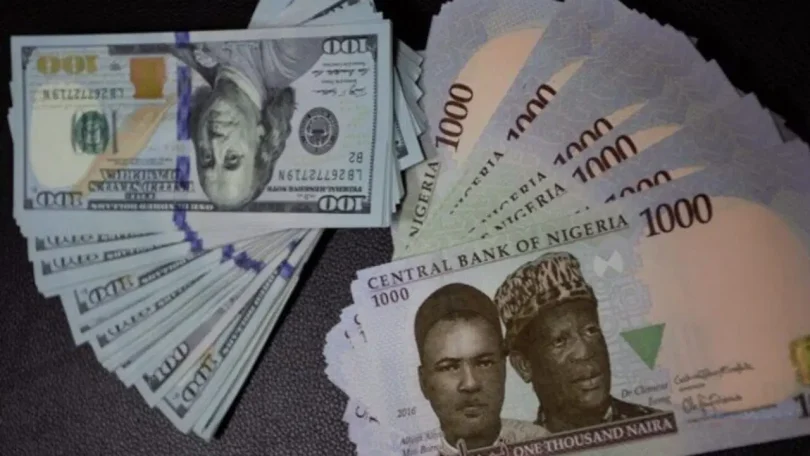The naira on Wednesday depreciated across the foreign exchange (FX) markets following a decline in liquidity and a slight increase in demand for the dollar.
Data from the Central Bank of Nigeria (CBN) showed that after trading on Wednesday, the naira weakened by 0.3 percent as the dollar was quoted at N1,438.49 compared to N1,433.65 recorded on Tuesday at the Nigerian Foreign Exchange Market (NFEM).
In the parallel market, also known as the black market, the local currency lost N20 to close at N1,460 per dollar, marking a 1.4 percent depreciation from N1,440 recorded the previous day.
The daily foreign exchange rate for international transactions on the GTBank Naira card closed at N1,446 per dollar on Wednesday, compared to N1,443 recorded on Tuesday.
Despite the pressure on the naira, Nigeria’s external reserves have continued to show steady growth, rising to $43.27 billion as of November 4, 2025, according to the latest CBN data.
Read also: Trump turmoil: Stocks, Eurobonds sink deeper as naira pares losses
However, FX inflows through the NFEM slowed last week, dropping to $1.04 billion from $1.37 billion recorded in the previous week, according to a report by Coronation Merchant Bank. The report revealed that foreign portfolio investors (FPIs) remained the dominant source of inflows, accounting for 62.3 percent ($645.40 million) of total FX receipts. This was followed by contributions from exporters at 15.0 percent, non-bank corporates at 11.6 percent, foreign direct investments (FDIs) at 1.9 percent, and other sources at 9.2 percent.
The naira’s decline on Wednesday followed a volatile start to the week. On Monday, the currency had depreciated by 1.0 percent in the official FX market after remarks by former U.S. President Donald Trump targeting Nigeria triggered market uncertainty.
Ayokunle Olubunmi, head of Financial Institutions Ratings at Agusto & Co., attributed the naira’s earlier weakness to Trump’s comments, which he said unsettled both the currency and bond markets. “I think it’s not far-fetched because even in the bond market, we also saw a drop. So yes, I agree that it is largely because of this Trump pronouncement,” he said.
Olubunmi explained that the reaction was not unusual, noting that the markets often respond sharply to such political statements. “The reaction in the currency and bond markets was not unexpected, considering that both had already shown signs of pressure following Trump’s comments,” he added.
He, however, expressed optimism that the situation would stabilise soon, describing Trump’s statements as part of his characteristic political style. “The market will settle because this is Trump’s style, he often makes strong statements, causes some initial disruption, and then things strengthen at the end of the day, sometimes without any real action,” Olubunmi said.
According to him, the impact of such comments is typically short-lived. “This is not the first time he’s doing it. Over the next couple of days, the market should stabilise,” he added.
By Tuesday, the naira had briefly recovered from Monday’s losses as the FX market appeared to shrug off the impact of Trump’s remarks on Nigeria. However, renewed pressure from declining liquidity and increased dollar demand weighed on the local currency once again on Wednesday.

